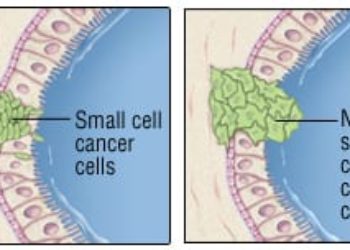Inavolisib lengthens progression-free survival time in HER2-negative advanced breast cancer
1. In this randomized controlled trial, in patients with PIK3CA-mutated advanced breast cancer, the addition of inavolisib to a palbociclib-fulvestrant regimen significantly extended progression-free survival compared to palbociclib-fulvestrant alone.
2. The addition of inavolisib did not significantly increase the overall occurrence of adverse events.
Evidence Rating Level: 1 (Excellent)
Study Rundown: Locally advanced or metastatic hormone receptor-positive breast cancer is driven by the estrogen receptor, cyclin-dependent kinase 4 and 6 (CDK4/6), and phosphatidylinositol 3-kinase (PI3K) pathways. Consequently, blocking these pathways simultaneously may offer an effective treatment strategy. Inavolisib is a selective inhibitor of the alpha isoform of the p110 subunit of PI3K and degrades proteins with mutations in this subunit. Prior research has shown that tumors with PIK3CA mutations are responsive to inavolisib, both alone and with other standard therapies. This study aimed to evaluate whether inavolisib, combined with palbociclib (a kinase inhibitor) and fulvestrant (an estrogen receptor antagonist), is superior to palbociclib-fulvestrant therapy alone in treating hormone receptor-positive, HER2-negative, locally advanced or metastatic breast cancer. Patients treated with inavolisib showed significantly longer progression-free survival than those in the placebo group, and twice as many patients in the inavolisib group had an objective response to treatment compared to the placebo group. There were no significant differences in adverse event rates between groups. However, limitations included the use of only one of three approved CDK4/6 inhibitors, exclusion of patients with type 1 or 2 diabetes, and underrepresentation of Black patients. Additionally, a few patients had prior treatment with a CDK4/6 inhibitor, leaving the impact of previous exposure on efficacy unclear. Nevertheless, the findings suggest that a regimen including inavolisib, palbociclib, and fulvestrant may be effective for patients with PIK3CA-mutated, hormone receptor–positive, HER2-negative advanced breast cancer.
Click here to read the study in NEJM
Relevant Reading: Improving the Outcome of Bad-Acting Hormone Receptor–Positive Breast Cancer
In-Depth [randomized controlled trial]: This randomized controlled trial evaluated the efficacy and safety of adding inavolisib, a PI3Kα inhibitor, to a palbociclib-fulvestrant regimen in patients with PIK3CA-mutated advanced breast cancer. Eligible patients had hormone receptor–positive, HER2-negative, locally advanced or metastatic breast cancer measurable by RECIST criteria, with disease progression or recurrence within one year of completing adjuvant endocrine therapy, fasting glucose levels below 126 mg/dL, and glycated hemoglobin below 6.0%. A total of 161 patients were randomized to the inavolisib-palbociclib-fulvestrant group (inavolisib group) and 164 to the palbociclib-fulvestrant group (placebo group). The median progression-free survival, the primary outcome, was 15.0 months in the inavolisib group, significantly longer than the 7.3 months in the placebo group (hazard ratio [HR], 0.43; 95% confidence interval [CI], 0.32-0.59; p<0.001). Subgroup analysis showed this consistent benefit of inavolisib across all subgroups except in patients over 65 years (HR, 0.96; 95% CI, 0.50-1.83) and those previously treated with an aromatase inhibitor and tamoxifen (HR, 1.17; 95% CI, 0.42-3.24). In addition, 58.4% of patients in the inavolisib group achieved an objective response to the treatment, compared to 25.0% of the patients in the placebo group (95% CI, 23.3-43.5). The median duration of response was 18.4 months in the inavolisib group and 9.6 months in the placebo group (HR, 0.57; 95% CI, 0.33-0.99). Although the overall rate of adverse events was similar between groups, serious adverse events occurred more frequently in the inavolisib group (24.1% vs. 10.5% in the placebo group). Adverse events led to the discontinuation of at least one trial agent in 6.8% of patients in the inavolisib group, compared to 0.6% in the placebo group. These findings suggest that adding inavolisib to a palbociclib-fulvestrant regimen may offer clinical benefits for patients with PIK3CA-mutated, hormone receptor–positive, HER2-negative advanced breast cancer.
Image: PD
©2025 2 Minute Medicine, Inc. All rights reserved. No works may be reproduced without expressed written consent from 2 Minute Medicine, Inc. Inquire about licensing here. No article should be construed as medical advice and is not intended as such by the authors or by 2 Minute Medicine, Inc.


![2MM: AI Roundup- AI Cancer Test, Smarter Hospitals, Faster Drug Discovery, and Mental Health Tech [May 2nd, 2025]](https://www.2minutemedicine.com/wp-content/uploads/2025/05/Untitled-design-350x250.png)






